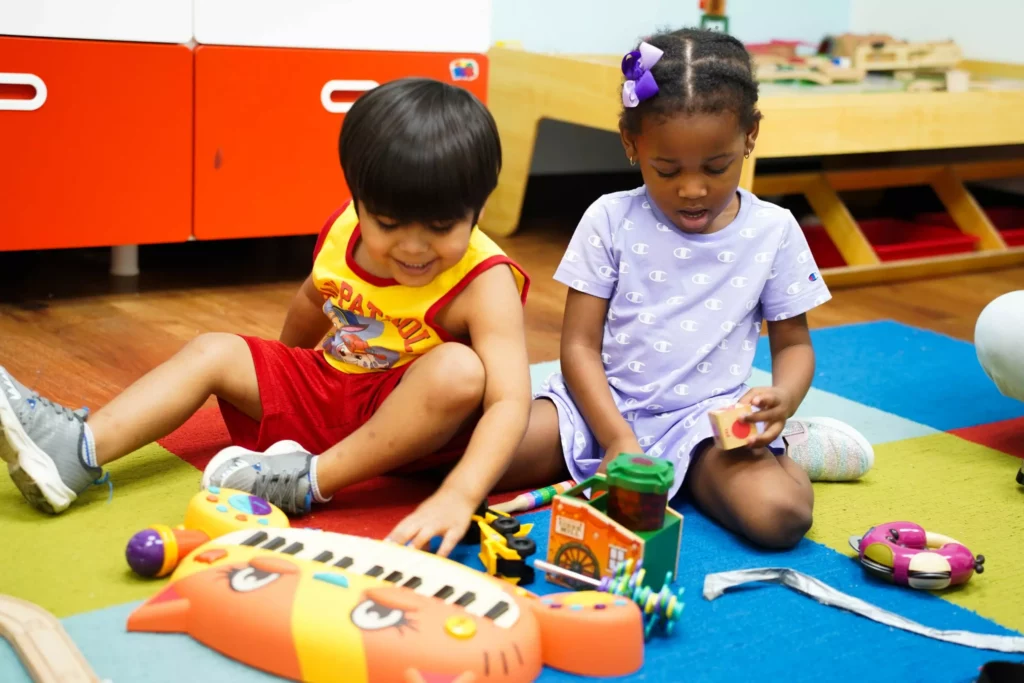Occupational therapy (OT) plays a crucial role in the development of children, addressing various physical, emotional, and social challenges that may hinder their growth. Occupational therapists (OTs) work collaboratively with children, families, and other professionals to enhance a child’s ability to participate in daily activities. This article delves into the multifaceted role of occupational therapists in child development, exploring their methodologies, areas of focus, and the impact they have on children’s lives.
The Foundation of Occupational
Occupational therapy is a client-centred health profession that aims to promote health and well-being through engagement in meaningful activities. For children, these activities may include play, schoolwork, self-care, and social interactions. OTs assess the child’s needs and develop tailored early childhood occupational therapy interventions to support their development.
The primary goal of occupational therapy is to enable children to participate fully in their daily lives. This is achieved by addressing barriers that may arise due to physical disabilities, developmental delays, or mental health issues. By focusing on the child’s strengths and interests, OTs create engaging and motivating therapeutic activities.
Key Principles of Occupational Therapy
Occupational therapy is grounded in several key principles that guide practitioners in their work with children:
- Client-Centred Approach: OTs prioritise the individual needs and preferences of each child, ensuring that interventions are relevant and meaningful.
- Holistic Perspective: OTs consider the child’s physical, emotional, social, and environmental factors that influence their development.
- Evidence-Based Practice: OTs utilise research and clinical evidence to inform their interventions, ensuring they are effective and up-to-date.
Areas of Focus in Child Development
Occupational therapists address a wide range of developmental areas, including but not limited to:
- Fine motor skills
- Gross motor skills
- Self-care skills
- Social skills
- Cognitive skills
Fine Motor Skills
Fine motor skills involve the use of small muscles in the hands and fingers, which are essential for tasks such as writing, buttoning clothes, and using utensils. OTs employ various activities to enhance these skills, including:
- Manipulative play with small objects
- Art and craft activities
- Games that require precision and control
By improving fine motor skills, children gain greater independence in self-care and academic tasks, boosting their confidence and self-esteem.
Gross Motor Skills
Gross motor skills encompass larger movements involving the arms, legs, and body. These skills are vital for activities such as running, jumping, and climbing. OTs often incorporate physical activities into therapy sessions, such as:
- Obstacle courses
- Ball games
- Dancing and movement activities
Enhancing gross motor skills not only supports physical development but also encourages social interaction and teamwork among peers.

Self-Care Skills
Self-care skills are essential for a child’s independence and include tasks such as dressing, grooming, and feeding. OTs work with children to develop these skills through:
- Structured routines
- Visual aids and checklists
- Role-playing scenarios
By mastering self-care skills, children gain confidence and a sense of accomplishment, which positively impacts their overall development.
Social Skills
Social skills are crucial for building relationships and interacting with peers. Occupational therapists help children develop these skills through group activities, role-playing, and social stories. Some strategies include:
- Encouraging turn-taking and sharing during play
- Practising conversational skills in structured settings
- Using games to teach empathy and cooperation
Improving social skills enables children to form friendships, navigate social situations, and develop emotional intelligence.
Cognitive Skills
Cognitive skills encompass thinking, learning, and problem-solving abilities. OTs support cognitive development through activities that challenge a child’s thinking processes, such as:
- Puzzles and memory games
- Storytelling and comprehension activities
- Creative problem-solving tasks
By enhancing cognitive skills, children become more adept at learning and adapting to new situations, which is vital for their academic success.
Assessment and Intervention Strategies
Occupational therapists employ a variety of assessment tools and intervention strategies to evaluate and support children’s development. The assessment process typically involves:
- Standardised tests to measure specific skills
- Observations of the child in different environments
- Interviews with parents and teachers to gather insights
Individualised Intervention Plans
Once assessments are complete, OTs develop individualised intervention plans tailored to each child’s unique needs. These plans may include:
- Specific goals and objectives
- Recommended activities and strategies
- Collaboration with families and educators to ensure consistency
Individualised plans are essential for tracking progress and making necessary adjustments to therapy as the child develops.
Collaborative Approach
Occupational therapists often work as part of a multidisciplinary team, collaborating with other professionals such as speech therapists, physiotherapists, and educators. This collaborative approach ensures that all aspects of a child’s development are addressed, providing comprehensive support. Regular communication among team members is vital for sharing insights and strategies that benefit the child.

The Impact of Occupational Therapy on Child Development
The benefits of occupational therapy for children are profound and far-reaching. Research has shown that early intervention can significantly improve outcomes for children with developmental challenges. Some of the key impacts include:
- Enhanced independence in daily activities
- Improved social interactions and relationships
- Increased confidence and self-esteem
- Better academic performance and engagement in school
Long-Term Benefits
Investing in occupational therapy during childhood can lead to long-term benefits, including:
- Greater success in adulthood, both personally and professionally
- Improved mental health and emotional well-being
- Stronger social networks and support systems
By addressing developmental challenges early on, occupational therapy helps children build a solid foundation for a fulfilling and successful life.
Conclusion
Occupational therapists play an invaluable role in supporting child development, addressing a wide array of challenges that can impact a child’s ability to thrive. Through tailored interventions, collaborative approaches, and a focus on individual strengths, OTs empower children to achieve their full potential. Understanding the role of occupational therapy is essential for parents, educators, and healthcare professionals alike, as it highlights the importance of early intervention and comprehensive support in fostering healthy development.
Read also

